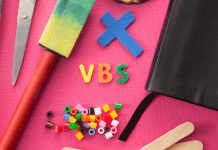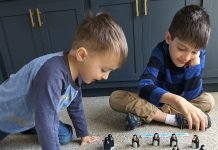We have had a lot of hard conversations in our house lately. Last August, our daughter started kindergarten the same day her grandpa died. She ended kindergarten in the middle of a pandemic and civil unrest. Between grandpa and COVID-19 and lots of discussions of why Black lives matter, conversations about death have been happening frequently in our home. Right now, our daughter is six and full of big questions about life, death, and everything in between.
 For us, it seems almost natural to have these discussions. Afterall, she is our rainbow baby and so conversations about her brother who died before her have always been a part of her young life. But this past year has been the first time that she has seen the reality that death really is a part of life.
For us, it seems almost natural to have these discussions. Afterall, she is our rainbow baby and so conversations about her brother who died before her have always been a part of her young life. But this past year has been the first time that she has seen the reality that death really is a part of life.
We have always taken a “don’t shield her from reality, but just filter it to what she can handle” type of approach with the tough subjects. These last few months have given us many opportunities to put this into practice.
Know Your Kid — You know how much they can handle. Your child’s age will most likely dictate how deep these conversations go. You might choose to break the conversation down into smaller pieces. Allowing them to have time to understand and process each bit of new information.
Choose Your Narrative — In our home, we believe in heaven, so we use this to guide our discussions. If that is not your thing, just know how you want to explain death, life after death, funerals, burial versus cremation, etc.
Listen — Kids are naturally curious. They will most likely have lots of questions and big feelings about what is going on. Taking time to listen to their fears, their feelings, and their questions is so important. Some kids might bounce right back after losing someone close, others might experience nightmares and anxiety that they will lose someone else or die themselves. It’s important to hear those concerns even if they don’t know how to fully express them.
Be Truthful — Be honest with your kids. They understand more than we often give them credit for. While it’s probably okay to tell your kids that their pet dog had to go live on a farm or their goldfish wanted to go swim with Nemo, it may also be a good opportunity to start a deeper conversation that will be helpful when it’s a grandparent, friend, or loved one that has “gone to live on a farm.” If you are attending a funeral, it will be a good idea to be honest and explain what will happen during and after and what they might see. One of my earliest memories is from my great grandmother’s funeral. No one had really explained what was going on to me, and I just remember being really confused to see my cousins crying. Giving your kiddos a heads-up about what is going on and how people might react that day will go a long way to help your children know how to process their own thoughts and feelings.
Keep it Simple — You can be honest and open with your kids without going into extreme details. While it’s good to explain that death means we won’t get to see them again at Christmas, don’t feel it’s necessary to go into extreme details outlining exactly how their loved one died. Let them lead the conversation. Offer answers, support, and lots of understanding. And remember, it’s okay if you don’t have all the answers to their questions.
Let Them See You Grieve — It’s okay (and actually healthy) for your kids to see you cry. It’s okay for them to watch how you process your grief and emotions during a difficult time. This allows them to know it is okay to cry, to be sad, to be angry, to be however they feel. Depending on age, it might be possible to let them help plan the funeral or memorial. Letting them feel included in the grief process helps give them a sense of control over their big feelings.
Be Prepared for Follow-Up — Every child will process the death of a pet, family member, or friend differently. Some might move on quickly and never seem to mention it again. Many process through play. You might overhear them playing that one of their dolls or toys is dead. That’s completely normal. Pretend play offers them a safe place to work through their feelings. Others may have lots of questions and just need reassurance that you and them are safe.
However you choose to engage your child on this difficult subject, remember there’s no one way to handle these discussions and navigating them will look different for each family.
















